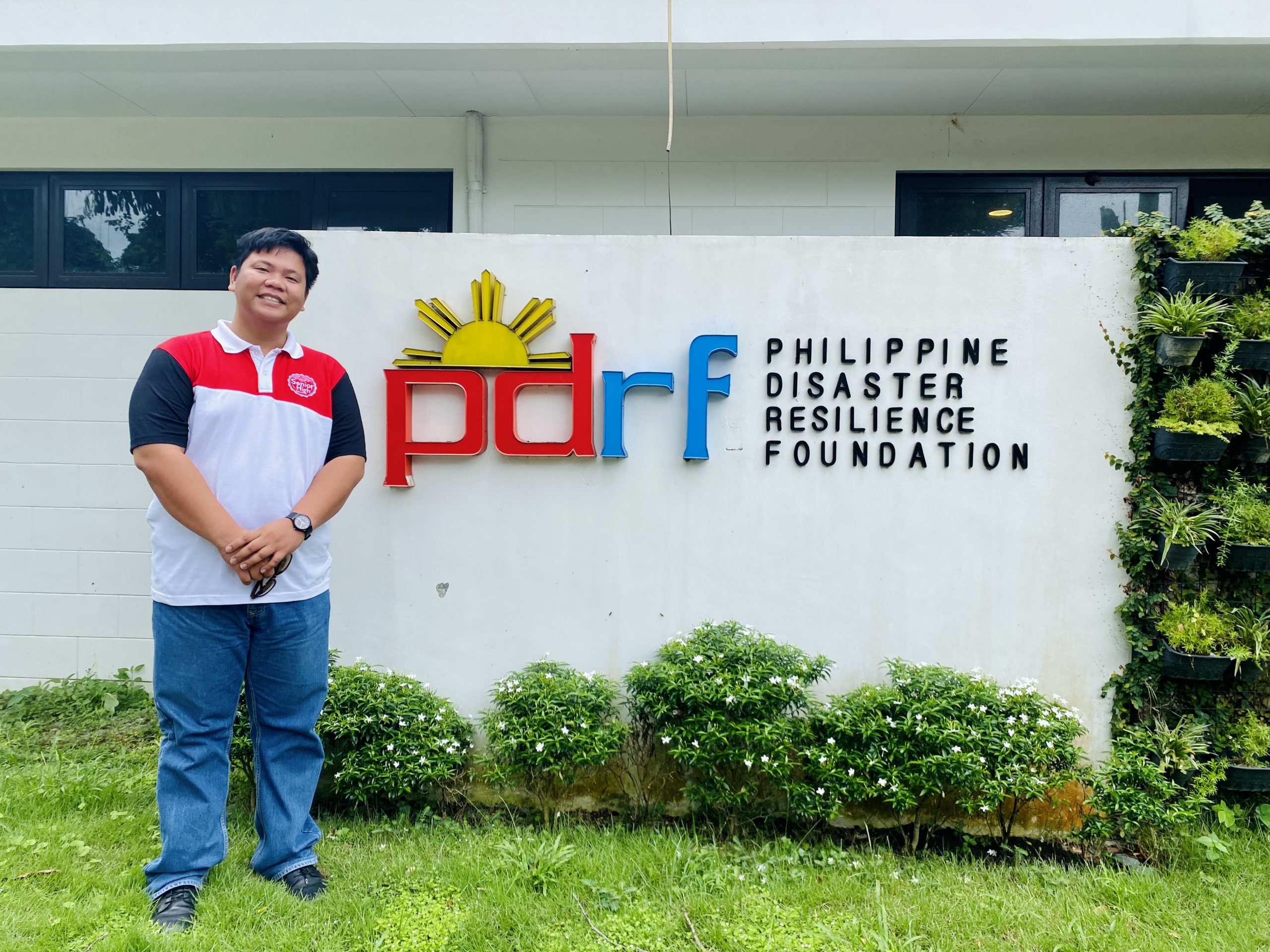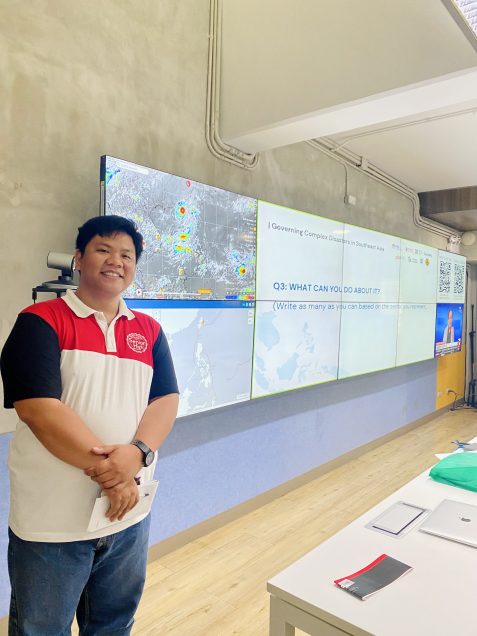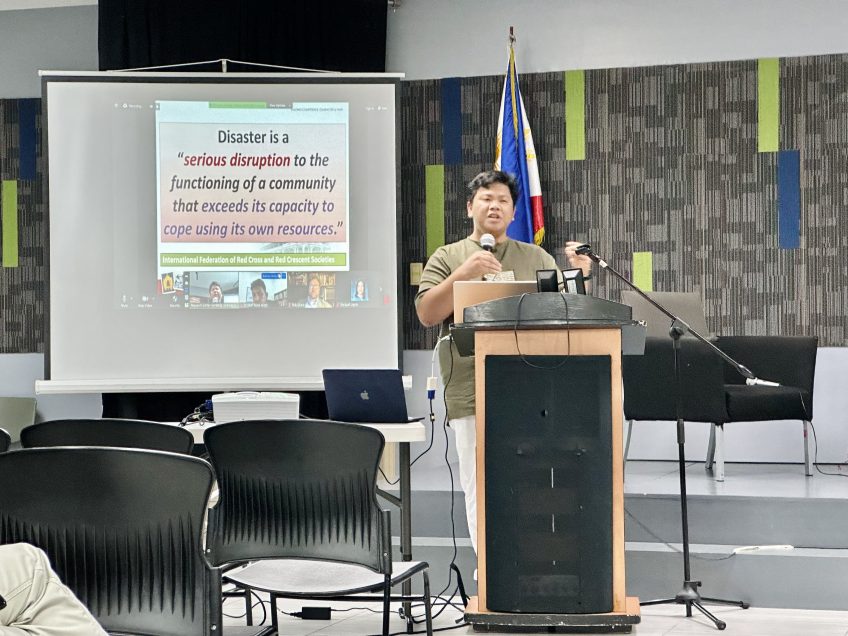
SHS faculty member presents research on disaster readiness, risk reduction in int’l workshop

Asst. Prof. Joshua Soldivillo, Silliman University Senior High School (SHS) faculty member, presented his research paper on teaching disaster readiness and risk reduction at the Governing Complex Disaster in Southeast Asia International Seminar-Workshop on October 5-7, 2023 at the University of Santo Tomas (UST) in Manila.
The hybrid event gathered around 80 in-person and 100 online participants, comprising academics, community leaders, humanitarian workers, civil society organization actors, private sector stakeholders, and government representatives from 133 institutions worldwide.
With the goal of exploring strategies to achieve a more inclusive and sustainable disaster response in Southeast Asia, the event focused on the governance of complex disasters, including the ongoing challenges posed by the COVID-19 pandemic and environmentally related hazards.
Teaching disaster readiness, risk reduction
Titled “A Journey from Theory to Practice: An Autoethnography of Teaching Disaster Readiness and Risk Reduction among Senior High School Students,” Soldivillo’s study aimed to gain deeper insights into students’ perspectives and the impact of teaching strategies on their learning experiences and contribute to the growing body of knowledge on disaster education.
Soldivillo used an autoethnographic approach to examine his experiences in teaching SHS students about theoretical and practical aspects of disaster readiness and risk reduction.
In his paper, Soldivillo highlighted the challenges and opportunities when transitioning from theory to practice in teaching SHS students about disaster readiness and risk reduction.
Soldivillo identified four key themes in teaching disaster readiness and risk reduction: the importance of experiential learning; students’ emotional engagement; preference for collaborative learning and peer-to-peer interaction; and role reflection and self-evaluation.
Soldivillo’s paper was selected for publication in a Special Issue of the Southeast Asia Multi-Disciplinary Journal (SAMDJ), an international journal indexed by Scopus and a partner of the international seminar-workshop. The special issue will be out in 2024.
Collaboration for disaster management
As a platform for interdisciplinary collaboration and knowledge exchange to advance the region’s capacity to respond effectively to complex disasters, the seminar-workshop emphasized the importance of preparedness, innovation, and cooperation in ensuring a more resilient future for Southeast Asia.
Dr. Annika Thunborg, Sweden Ambassador to the Philippines, outlined in her welcome remarks the importance of disaster risk reduction and management in the Philippines given its geographical, hydrometeorological, geological, and environmental profile.
She also said coordination and collaboration are important in disaster response efforts, similar to Sweden’s COVID-19 initiatives in assisting countries in need of vaccines and humanitarian assistance during the peak of the pandemic.
Aside from paper presentations, the event included lectures and workshops on sustainability and disaster management, community experiences on complex disasters, multi-hazard governance in Southeast Asia, systems thinking for flood management, and private sector engagement in disaster risk management, among others.
Meanwhile, plenary sessions during the event covered topics including the complexity of healthcare challenges during climate disasters and pandemics, the history of epidemics in Southeast Asia, and the role of women in humanitarian action.
Participants also underwent technical training on humanitarian coordination, held at the Philippine Disaster Resilience Foundation Operations Center in Clark, Pampanga.
The seminar-workshop was organized by the UST-Research Center for Social Sciences and Education, Deakin University-Alfred Deakin Institute for Citizenship and Globalization, Brown University-Center for Human Rights and Humanitarian Studies, Philippine Disaster Resilience Foundation, Curiosity Design Research, and Sweden Alumni Network-Philippines, with support from the Swedish Institute.




